Search
Remove Ads
Advertisement
Summary 
Loading AI-generated summary based on World History Encyclopedia articles ...
Search Results
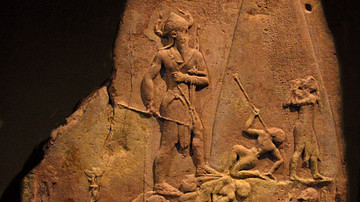
Definition
Naram-Sin
Naram-Sin (r. 2261-2224 BCE) was the last great king of the Akkadian Empire and grandson of Sargon the Great (r. 2334-2279 BCE) who founded the empire. He is considered the most important Akkadian king after Sargon (or, according to some...

Article
The Curse of Agade: Naram-Sin's Battle with the Gods
The Curse of Agade is a story dated to the Ur III Period of Mesopotamia (2047-1750 BCE) though thought to be somewhat older in origin. It tells the story of the Akkadian king Naram-Sin (r. 2261-2224 BCE) and his confrontation with the gods...
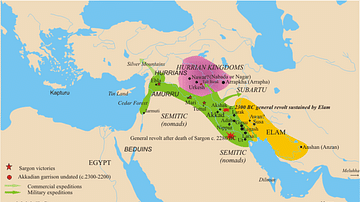
Definition
Akkad and the Akkadian Empire
Akkad was the seat of the Akkadian Empire (2334-2218 BCE), the first multi-national political entity in the world, founded by Sargon the Great (r. 2334-2279 BCE) who unified Mesopotamia under his rule and set the model for later Mesopotamian...
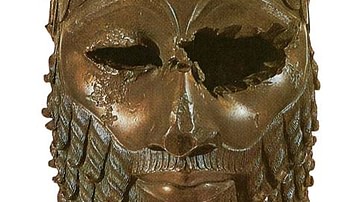
Definition
Sargon of Akkad
Sargon of Akkad (r. 2334 - 2279 BCE) was the king of the Akkadian Empire of Mesopotamia, the first multi-national empire in history, who united the disparate kingdoms of the region under a central authority. He is equally famous today as...
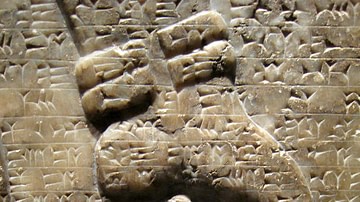
Article
Truths Wrapped in Fiction: Mesopotamian Naru Literature
Originality in literary compositions in the ancient world did not carry the same weight and value as it does today. In recent centuries, authors have been applauded for the creation of original works and have been derided for plagiarism or...
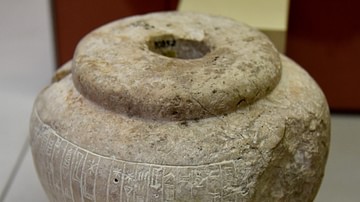
Definition
Gutians
The Gutians were a West Asiatic people who are thought to have lived around the Zagros Mountains in a region referred to as Gutium. They had no written language and all that is known of them comes from their enemies, including the Akkadians...
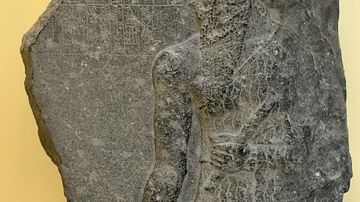
Article
The Legend of Cutha
The Legend of Cutha (also known as the Cutha Legend and Kutha Legend) is a fictional work dated to the 2nd millennium BCE belonging to the genre known as Mesopotamian Naru literature. It features the Akkadian king Naram-Sin (r. 2261-2224...
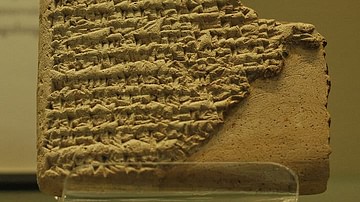
Article
The Legend of Sargon of Akkad
The Legend of Sargon of Akkad (c. 2300 BCE) is an Akkadian work from Mesopotamia understood as the autobiography of Sargon of Akkad (Sargon the Great, r. 2334-2279 BCE), founder of the Akkadian Empire. The earliest copy is dated to the 7th...
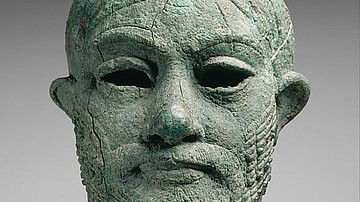
Definition
Mesopotamian Naru Literature
Mesopotamian Naru Literature was a literary genre, first appearing around the 2nd millennium BCE, which featured a famous person (usually a king) from history as the main character in a story that most often concerned humanity's relationship...

Image
Stele of the Akkadian king Naram-Sin
According to the inscription on the diorite piece of stele, it belongs to King Naram-Sin. It was found in Pir Hüseyin, a village near Diyarbakır. As it shows the borders of the Akkadian State in the era of Naram-Sin and reflects the artistic...